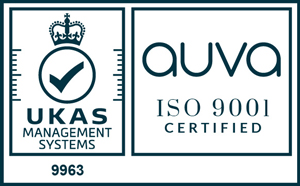Commercial Vehicle Solar Panels: Is Continuous Data Monitoring a Must-Have?

In commercial vehicle solar panel installations, efficiency, simplicity, and practicality are paramount. One component that has gained attention is the smart charge controller, acclaimed for its data-rich capabilities. However, we challenge the assumption that ongoing data downloads from these controllers are an absolute necessity. In this article, we explore why data analytics from smart charge controllers may not be required for a commercial vehicle solar panel setup.
What is a Smart Charge Controller?
The primary function of a charge controller is to regulate the charging and discharging of batteries to optimise energy utilisation. The charge controller monitors the state of the batteries, the available energy input from the solar panel and the energy demand in real-time. By doing so, it can adjust the charging parameters dynamically, such as voltage and current levels, to ensure that the batteries are charged optimally while preventing overcharging or over-discharging, which can damage the batteries.
Charge controllers used in solar installations range from basic models with limited capability to more expensive types which have full remote connectivity. The lower end range can store a limited amount of data and the data is not accessible remotely – either a laptop needs to be plugged in or data can be downloaded to a secondary device via Bluetooth. At the higher end, the charge controller is permanently connected to the wireless LTE network and so can push real-time data remotely to an online monitoring platform.
The Promise of Smart Charge Controllers Versus the Reality
Smart charge controllers have emerged as game-changers in the solar industry, allowing for real-time, remote monitoring of solar panel systems. These features undoubtedly offer valuable insights into energy production, usage patterns, and system health, but when it comes to commercial vehicle solar panel installations, the practicality of continuous data collection warrants a closer look.
One of the key benefits of a solar panel installation for commercial vehicles is its inherent simplicity. Solar panels harness energy from the sun, which is then used to charge the vehicle’s battery. This simple principle doesn’t require constant monitoring or intervention. Modern solar panels are designed to withstand various environmental conditions, and the need for real-time adjustments is minimal once the system is correctly set up.
During the initial stages of a commercial vehicle solar panel evaluation, an all-singing, all dancing smart charge controller can indeed be invaluable – that we don’t deny. Having access to performance data, such as energy generation, consumption patterns, and efficiency in varying conditions of course proves its success. However, once the system’s viability is proven, the need for continuous data collection diminishes significantly. In reality, the only proof required to demonstrate the success of a solar panel is the absence of flat batteries!
Data Overload: The Fleet Manager’s Challenge
Fleet managers responsible for commercial vehicles are already grappling with an influx of data from various sources – vehicle tracking, maintenance records, fuel consumption, driver behaviour, and more. The addition of real-time solar panel data might seem appealing in theory, but it adds yet another layer of complexity to an already intricate web of information.
Cost-Effectiveness
Smart charge controllers with continuous data transmission capabilities come with additional costs, including hardware, software, and potential subscription fees for data hosting. For commercial vehicle solar installations, the return on investment from these ongoing data services may not justify the added expense, especially considering that the initial optimisation phase provides the bulk of the required insights.
While the capabilities of smart charge controllers are undeniably impressive, their relevance in commercial vehicle solar panel installations must be evaluated in the context of real-world practicality. The initial data download to validate the system’s effectiveness is indeed valuable. However, beyond this phase, the benefits of ongoing data collection become outweighed by the complexities, costs, and information overload faced by fleet managers.
At Genie Insights we can and do supply a range of charge controllers dependent on customer needs, up to and including fully live, remote systems, but in many cases the basic model is perfectly adequate. And with thousands of panels in circulation with no complaints of flat batteries that is all the evidence we need!


